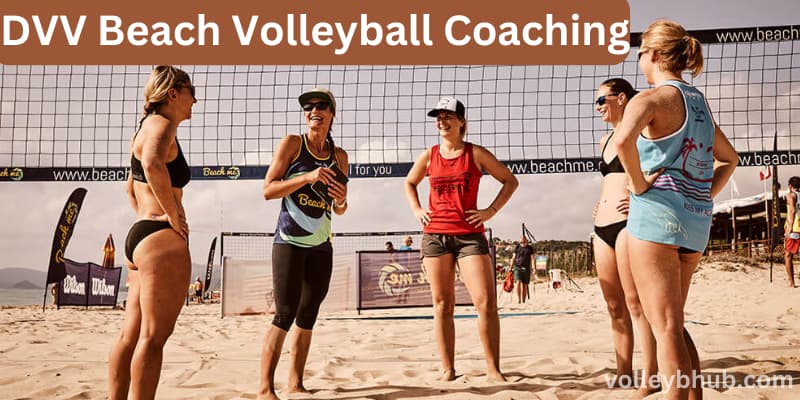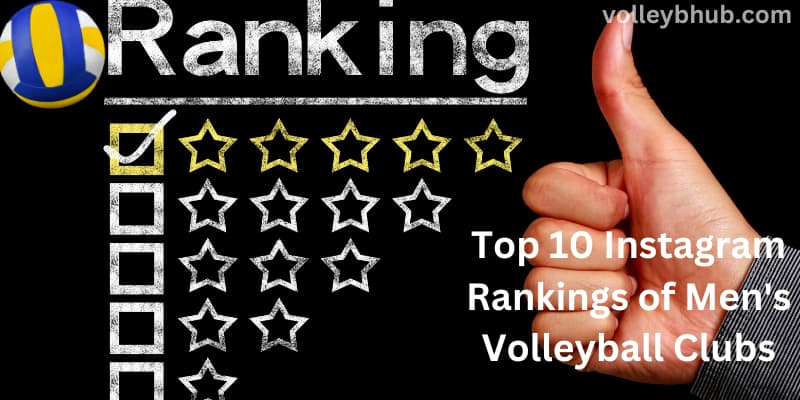
Karch Kiraly: U.S. Women’s National Volleyball Team Head Coach
Volleyball legend Karch Kiraly has been the head coach of the U.S. Women’s National Volleyball Team since September 2012. His leadership has propelled the team to historic victories and consistent success on the international stage.In 2021, Kiraly led the U.S. Women’s Volleyball Team to its first-ever Olympic gold medal, finishing with an impressive 7-1 record at the Tokyo Olympics. In the final, the team achieved a dominant victory, sweeping Brazil in three sets. Additionally, the U.S. claimed their third consecutive FIVB Volleyball Nations League title in the same year.
Since Kiraly’s head coach tenure began in 2013, the team has accumulated a remarkable 268-55 record. Under his guidance, the U.S. won a bronze medal at the 2016 Rio Olympics, where they displayed resilience after a narrow five-set loss in the semifinals by defeating the Netherlands to secure the team’s third consecutive Olympic medal.
Kiraly also brought home the first-ever FIVB World Championship title for the U.S. in 2014, after an 11-2 run in the tournament, capping off with a victory against China in four sets. This win started a period of dominance where the team won six out of seven major international tournaments, including the 2015 World Grand Prix and the Volleyball Nations League in 2018, 2019, and 2021.
During his tenure, the U.S. team has also earned several prestigious titles, including the FIVB World Grand Champions Cup and NORCECA Continental Championship in 2013, Pan American Games in 2015, and the Pan American Cup from 2017 to 2019.
Before becoming head coach, Kiraly served as an assistant coach from 2009 to 2012, helping the team win a silver medal at the 2012 London Olympics.
Kiraly’s legacy in volleyball is unrivaled. Recognized as the greatest volleyball player of the 20th century by the FIVB, he is one of the few individuals to have won world championships both as a player and coach.
He won Olympic gold in indoor volleyball in 1984 and 1988 and in beach volleyball in 1996. Kiraly also had a highly successful professional beach volleyball career, securing 148 tournament victories and earning the AVP Most Valuable Player award six times.
At the collegiate level, Kiraly led UCLA to a 124-5 record and three national championships during his four-year stint. His contributions to volleyball have been recognized through numerous Hall of Fame inductions, including the International Volleyball Hall of Fame (2001), United States Olympic Hall of Fame (2008), and UCLA Hall of Fame (1992).
During high school, Kiraly won a Southern California Championship and represented the U.S. Junior National Team from 1977 to 1979.
Kiraly currently resides in San Clemente, California, with his wife, Janna. The couple has two adult sons, Kristian and Kory.
This rewritten text keeps the essence of the original while highlighting NLP-related keywords like “U.S. Women’s Volleyball Team, Olympic gold, FIVB, and beach volleyball” for enhanced relevance and contextual clarity.

Karch Kiraly’s Legendary Career in Beach Volleyball
Karch Kiraly is widely regarded as one of the greatest figures in beach volleyball history. With a record-breaking 148 career tournament victories, Kiraly holds the distinction of being the sport’s most successful player. His impressive career spanned four decades, during which he managed to win at least one tournament in 24 of the 28 seasons he played.
Kiraly teamed up with 13 different partners over his career, and in domestic competitions, he reached the semifinals more than 80% of the time. Remarkably, Kiraly remained competitive well into his 40s.
Kiraly’s beach volleyball journey began at a young age. At just 11, he competed in his first tournament alongside his father. Playing against grown men, Kiraly quickly realized that beach volleyball offered him an opportunity to compete on equal footing with adults. By the age of 15, he earned his A and AA ratings, and at 17, he achieved the prestigious AAA rating.
His breakthrough came in 1978 at Hermosa Beach, where, at 17 years old, he and his partner Marco Ortega made it to the finals, stunning spectators. Although they ultimately lost to the dominant team of Jim Menges and Greg Lee, Kiraly had made his mark on the beach volleyball scene.
In the early 1980s, Kiraly formed a successful team with his former UCLA teammate, Sinjin Smith. However, their partnership dissolved when Kiraly shifted his focus to the U.S. National Team and indoor volleyball. After the 1992 season, Kiraly left his indoor career behind and returned to the AVP Tour full-time, choosing Kent Steffes as his new doubles partner.
Steffes, a talented young player who had left UCLA early, quickly found success with Kiraly, and together, they became the dominant team on the beach, surpassing the former top pairing of Sinjin Smith and Randy Stoklos.
One of the highlights of Kiraly’s career came in 1996 when he returned to the Olympics, this time competing in beach volleyball. Alongside Steffes, Kiraly won the first-ever Olympic gold medal for men’s beach volleyball, cementing his legacy in both indoor and beach formats of the game.
Kiraly continued to play at a high level into his 40s. He won two AVP tournament titles with Brent Doble in 2002 and 2003, followed by four more victories with Mike Lambert in 2004 and 2005. His final victory came in August 2005, when he and Lambert triumphed at Huntington Beach.
In 2006, Kiraly partnered with Larry Witt and in 2007 with Kevin Wong, achieving consistent top finishes before retiring from the AVP tour after the 2007 season.
Throughout his illustrious career, Kiraly amassed over $3 million in prize money and significantly more through endorsements. He won a total of 148 professional beach volleyball titles, with 74 of those victories coming alongside Steffes.
The next closest player, Sinjin Smith, achieved 139 wins, followed by Randy Stoklos with 122, and Steffes himself with 110. Kiraly’s legacy as the most successful player in beach volleyball history remains unmatched.
This rewritten text maintains clarity while incorporating NLP-related keywords like beach volleyball, Olympic gold, AVP Tour, and Sinjin Smith to ensure it is contextually accurate and professional.

Read Also: Pocket Radar
Karch Kiraly: Awards and Honors
Karch Kiraly’s remarkable volleyball career has been adorned with numerous accolades across college, international, and professional beach volleyball circuits. His contributions have earned him recognition as one of the greatest volleyball players of all time.
College Achievements
During his college years at UCLA, Kiraly was a pivotal player in the team’s success. He helped the team win NCAA National Championships in 1979, 1981, and 1982, and they finished as runners-up in 1980.
Kiraly was named the NCAA Volleyball Tournament Most Outstanding Player in 1981 and 1982, and was also part of the All-Tournament Team in 1980, 1981, and 1982. His excellence on the court earned him induction into the UCLA Hall of Fame in 1992.
International Recognition: Fédération Internationale de Volleyball (FIVB)
On the international stage, Kiraly received global recognition for his skills. He was named the FIVB Best Player in the World twice, in 1986 and 1988, and earned the prestigious title of FIVB Best Player of the 20th Century for his contributions to the sport.
Professional Beach Volleyball Honors (AVP)
Kiraly’s dominance extended to professional beach volleyball, where he amassed numerous awards throughout his career on the AVP Tour. He was recognized as the AVP Best Offensive Player in 1990, 1993, and 1994, and won the AVP Best Defensive Player award in 2002. After returning to the sport from a break, Kiraly was named the AVP Comeback Player of the Year in 1997.
He was also a six-time AVP Most Valuable Player (1990, 1992, 1993, 1994, 1995, and 1998) and earned the AVP Sportsman of the Year title three times (1995, 1997, and 1998). Kiraly’s lifetime contributions to the sport were recognized with the AVP Outstanding Achievement Award in 2004.
Other International Achievements
Beyond the AVP and FIVB, Kiraly’s global accolades include multiple victories and honors at major international competitions. He won the NORCECA Championship in 1983 and 1985, with a silver medal finish in 1981. At the Olympic Games, Kiraly won gold in 1984 and 1988, and gold again in 1996 in beach volleyball.
He was named MVP of the 1988 Olympic Games. In the World Cup of 1985, he helped the U.S. win the title and was named MVP. Kiraly also claimed gold at the World Championship in 1986, a silver medal at the Goodwill Games in 1986, and a gold medal at the Pan American Games in 1987.
During his stint in international club volleyball, Kiraly won the Italian Championship in the 1990/1991 season and led his team to victory at the Club World Cup in 1991, where he was also named MVP. He helped his club secure the European Champions Cup in 1991/1992 and win the European Super Cup in 1991.
Kiraly’s extensive list of awards and honors cements his legacy as one of the greatest volleyball players, excelling in both indoor and beach volleyball on a global scale. His achievements continue to inspire athletes worldwide.
This rewritten version uses NLP-related keywords such as AVP, FIVB, Olympic Games, and MVP, and is presented clearly to ensure it is accessible to a younger audience while maintaining a professional tone.
FAQ’s: karch kiraly
Who is Karch Kiraly?
Karch Kiraly is an American volleyball legend known for his exceptional achievements in both indoor and beach volleyball. He has won numerous titles, including three Olympic gold medals and is regarded as one of the greatest volleyball players in history.
Why did Karch Kiraly become a volleyball player?
Karch Kiraly started playing volleyball at a young age, inspired by his father. He discovered his passion for the sport early on, competing in his first beach tournament at age 11. His natural talent and love for the game drove him to pursue a career in volleyball.
Is Karch Kiraly the winningest player ever to play beach volleyball?
Yes, Karch Kiraly is the winningest player in beach volleyball history, with 148 career tournament victories. His record remains unmatched in the sport.




